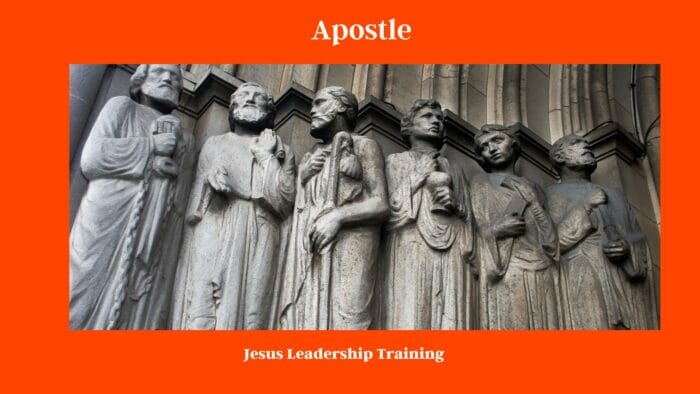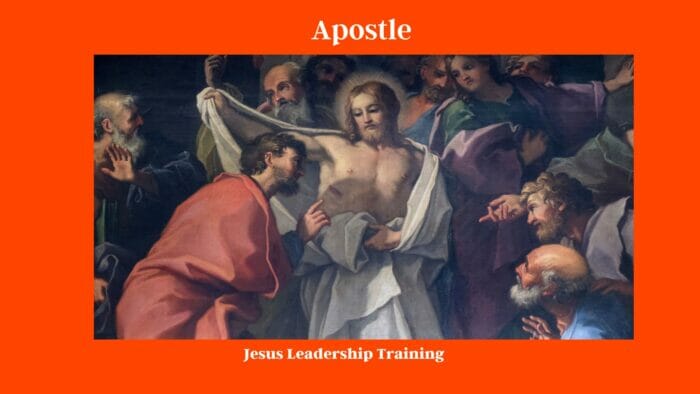In this comprehensive article, we delve into the world of apostles, exploring their significance, characteristics, and biblical definitions. Join us on this enlightening journey as we examine the 12 Apostles in Catholicism, their fates, and the lessons we can learn from their lives. Get ready to be inspired by these historical figures who played pivotal roles in shaping Christianity.
Throughout history, certain individuals have emerged as influential figures, leaving a lasting impact on the world and shaping the course of religious beliefs. Among these figures are the apostles, who played a central role in the early Christian movement. In this in-depth article, we will explore the concept of apostles, their biblical definitions, the 12 Apostles in Catholicism, what happened to them, and their distinctive characteristics.
Table of Contents
What is an Apostle?
The term “apostle” holds great significance in the context of Christianity. An apostle is a chosen messenger or ambassador, sent forth to spread the teachings and mission of Jesus Christ. These individuals were not merely followers; they were entrusted with a divine mission to establish and propagate the Christian faith.
Biblical Definition of an Apostle
In the New Testament of the Bible, the term “apostle” is frequently mentioned, and its meaning is clarified through various passages. The apostles are described as witnesses to the resurrection of Jesus Christ and are chosen by Him to carry out His work on Earth. They were endowed with special authority and power to perform miracles and heal the sick.

12 Apostles Catholic
The 12 Apostles, also known as the Twelve Disciples, are a central figure in Catholicism. Let’s delve into each apostle’s life and their contributions to the faith.

Judas Iscariot
Judas Iscariot is perhaps the most infamous of the 12 Apostles due to his betrayal of Jesus, leading to His crucifixion. Despite this tragic act, Judas serves as a cautionary figure, reminding us of the consequences of greed and deceit.
Barthelomew
Barthelomew, also known as Nathanael, was one of the lesser-known apostles. He was recognized for his unwavering faith and was a witness to several miracles performed by Jesus.
James the Great
James the Great, the brother of John, was one of Jesus’ closest confidants. He was instrumental in spreading Christianity to Spain and is remembered as a symbol of pilgrimage and devotion.
St. Peter
St. Peter, also known as Simon Peter, was a prominent figure among the apostles and a key leader in the early Christian church. He was often depicted as impulsive but showed great resilience and faith in the face of adversity.
Andrew
Andrew, Peter’s brother, was known for his humility and selflessness. He played a crucial role in bringing others to Christ, including introducing Peter to Jesus.
John
John, often referred to as the beloved disciple, had a deep spiritual connection with Jesus. He is renowned for his writings, including the Gospel of John and the Book of Revelation.

Thomas
Thomas, often referred to as “Doubting Thomas,” became famous for his skepticism when he initially doubted Jesus’ resurrection. However, his doubt transformed into unwavering faith, becoming an inspiration to believers.
Matthew
Matthew, a tax collector before becoming an apostle, was known for his Gospel, which provides essential insights into the life and teachings of Jesus.
Philip
Philip’s defining characteristic was his inquisitiveness and desire to understand. He played a role in bringing Nathanael to Jesus and sought to deepen his understanding of faith.
Simon
Simon the Zealot was passionate about his beliefs and fervently sought to uphold his principles. He later channeled his passion into spreading the Christian faith.
James the Less
James the Less, not to be confused with James the Great, was a devout apostle known for his humility and piety.

Nathanael
Nathanael, also identified as Bartholomew, had a sincere and honest heart, qualities that Jesus commended.
What happened to the 12 apostles?
The fates of the 12 apostles were diverse and often marked by great sacrifice and martyrdom. Let’s explore their individual paths.
Judas Iscariot
Judas Iscariot’s betrayal of Jesus led to profound guilt and remorse. In his despair, he tragically took his own life, serving as a cautionary tale against greed and treachery.
Barthelomew
Barthelomew is believed to have traveled to various regions, spreading the message of Christianity. Tradition holds that he was martyred for his faith.
James the Great
James the Great was the first apostle to face martyrdom at the hands of King Herod Agrippa I. His steadfast faith and courage continue to inspire believers.
St. Peter
St. Peter’s unwavering commitment to Jesus led to his eventual crucifixion. Tradition holds that he requested to be crucified upside down, feeling unworthy to die in the same manner as his Lord.
Andrew
Andrew faced martyrdom in the city of Patras, Greece, where he was crucified on an X-shaped cross, now known as the St. Andrew’s Cross.
John
John is the only apostle traditionally believed to have died a natural death. He passed away peacefully in Ephesus, leaving behind a profound legacy through his writings.
Thomas
Thomas traveled to India, where he propagated the Gospel. He ultimately faced martyrdom, becoming a symbol of faith and devotion.
Matthew
Matthew’s mission took him to Ethiopia, where he was martyred for his faith.
Philip
Philip faced persecution in the city of Hierapolis and was ultimately martyred by crucifixion.
Simon
Simon was martyred in Persia for his unwavering commitment to Christianity.
James the Less
James the Less met his fate in Jerusalem, where he was stoned to death for his beliefs.
Nathanael
Nathanael, like Barthelomew, is believed to have traveled to various regions to spread the Gospel. While the details of his death are not well-documented, tradition suggests he also met martyrdom.
12 Apostles and Their Characteristics
Each apostle possessed unique characteristics and attributes that continue to inspire and guide believers to this day. Let’s explore the defining traits of these influential figures.
Judas Iscariot
Judas Iscariot’s characteristics of greed and betrayal serve as a stark warning against the dangers of placing material gains above principles.
Barthelomew
Barthelomew’s humility and unwavering faith are lessons in steadfast devotion to one’s beliefs.
James the Great
James the Great’s courageous and adventurous spirit embodies the idea of taking risks for a higher purpose.
St. Peter
St. Peter’s impulsive and sometimes flawed nature reminds us of the potential for personal growth and transformation.
Andrew
Andrew’s selflessness and dedication to bringing others to Christ exemplify the essence of evangelism.
John
John’s deep spiritual connection with Jesus demonstrates the power of a profound relationship with the divine.
Thomas
Thomas’s transformation from doubt to unwavering faith is a reminder that questioning and seeking understanding can lead to profound revelations.
Matthew
Matthew’s transformation from a tax collector to an apostle reminds us of the possibility of redemption and transformation.
Philip
Philip’s inquisitive nature encourages believers to seek knowledge and deeper understanding of their faith.
Simon
Simon’s passionate commitment to his beliefs highlights the importance of standing firm in one’s convictions.
James the Less
James the Less’s piety and humility serve as a reminder of the power of modesty and sincerity.
Nathanael
Nathanael’s sincerity and honest heart demonstrate the value of authenticity and integrity.
Final Thoughts
The apostles were remarkable individuals who played a crucial role in shaping the foundations of Christianity. Their unwavering faith, dedication, and sacrifices continue to inspire countless believers worldwide. As we explore the lives of these influential figures, we find lessons that resonate across time and space. From their triumphs to their struggles, the apostles’ stories serve as a source of strength, hope, and guidance for those seeking a deeper understanding of their faith. So, let us reflect on their legacies and the impact they have on our lives today.




